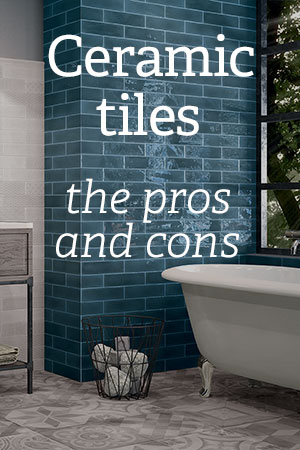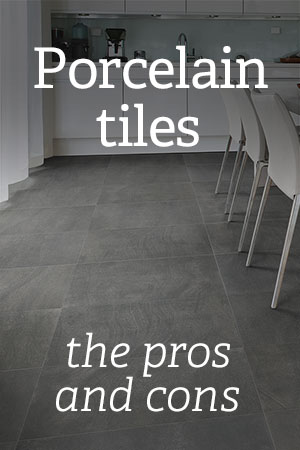We use cookies to make your experience better. To comply with the new e-Privacy directive, we need to ask for your consent to set the cookies. Our Privacy Policy
Natural stone tiles - the pros and cons
It’s that time of year when we’ve had our holidays abroad and now have been thrown back to reality. Recreating the beautiful interiors closer to home will give a daily reminder of the tranquil lifestyle away, which may well help with the post-holiday blues!
In the Mediterranean, you’ll see an abundance of warm and textured local materials. Natural stone, such as terracotta or marble tiles will often be the first choice in their interior design. Whether this works in your dream home though may depend on many factors – let’s look into the pros and cons of using stone tiles in the modern home.
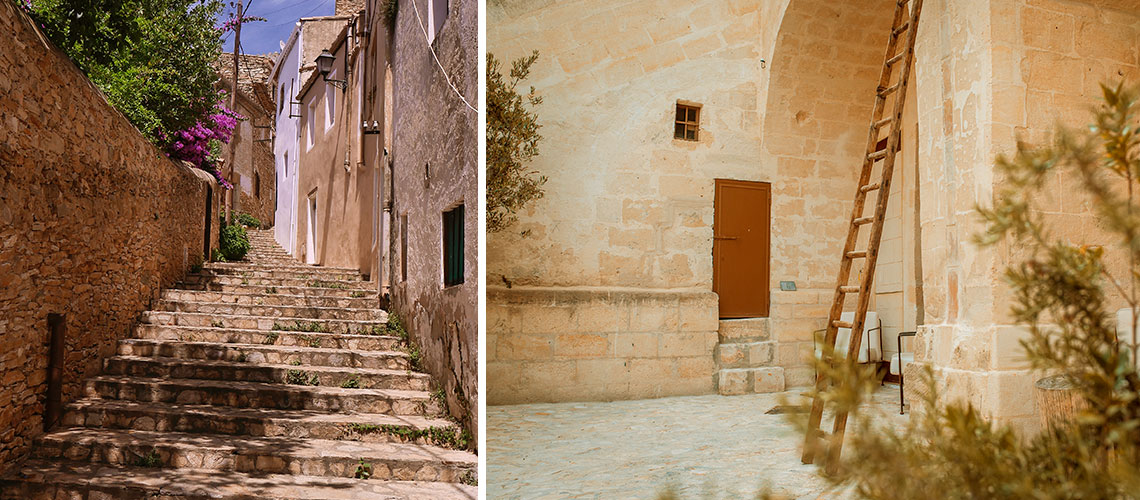
Naturally beautiful and hard-wearing
Stone flooring is undeniably amazing and will create a powerful impression in any room. As it’s a natural product, every tile is unique with its own individual markings, veining, patterns and textures. Imitation stone tiles are a manufactured product which can be extremely realistic, but there will be repeating patterns and an expert will be able to spot the difference.
The stronger varieties of stone, such as sandstone, granite, marble or limestone are perfect to use in heavy traffic areas. Stone lasts forever and will not wear away; it’s often said that its natural weathering makes the appearance improve with age. Natural stone flooring is timeless and not affected by fashion trends.
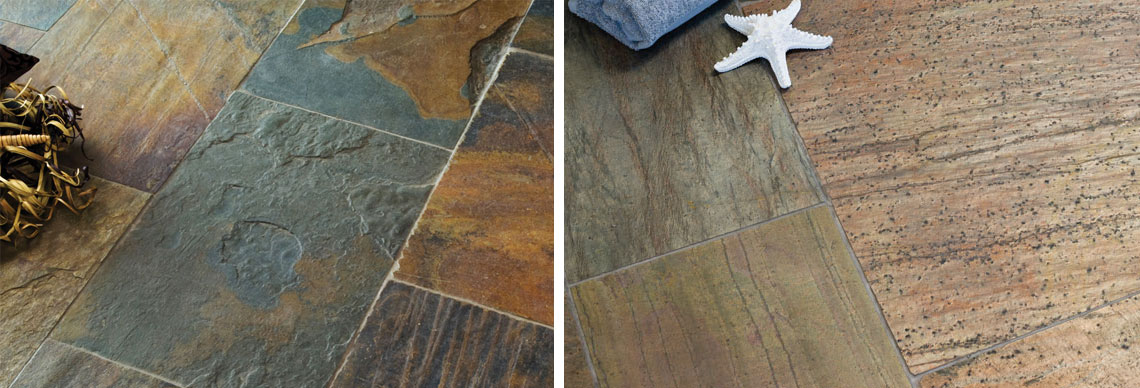
- The natural beauty and diversity of slate -
Stone is suitable to be laid on a variety of surfaces. It works beautifully when the same tile is used throughout, creating an unbroken view and making the space appear larger. When also used on the patio outside, there will a seamless transition from the outdoor to indoor space, bringing the indoors out and the outdoors in.
Stone tiles stay cool to the touch, even in warm weather, so the ideal choice to keep the room cool in summer months. This is one of the reasons it’s so popular in countries with warm climates. But what about the winter? Well, the great news is that stone is a good conductor of heat. In most cases, it is suitable to be paired with underfloor heating, and once warmed, it retains the heat very well. Some materials, such as marble, will take longer to heat up, particularly if it is very thick, but once heated, it will remain warm and serve as an energy efficient way to heat your room.
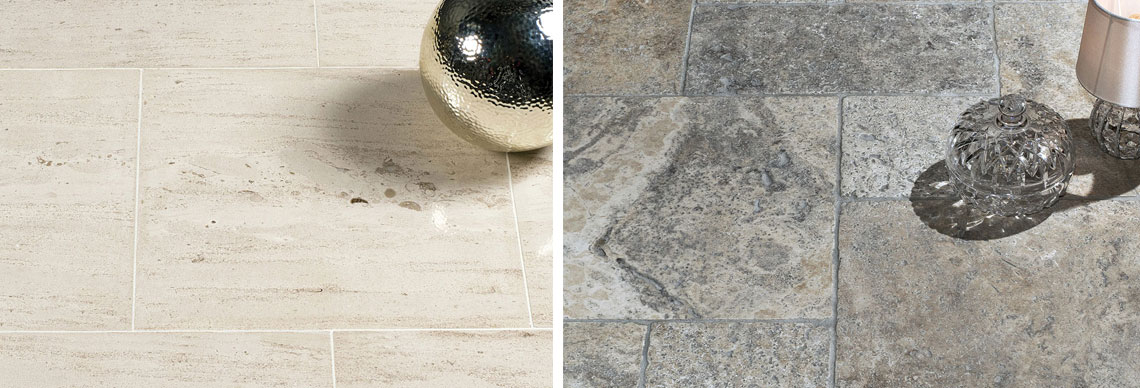
- Grains and veining of limestone and tumbled travertine -
A costly material... but you get what you pay for
There are many benefits to using stone on your floors, they are strong, durable, will last for a lifetime and never go out of style. But all these advantages some at a cost; compared with other materials, stone is perhaps the costliest. As it’s a natural product of the earth, and a one-of-a-kind item, it’s not a surprise that there would be a high cost of purchase. However, not only will the stones themselves be more expensive, but also the cost of delivery and the labour for installing it.
Real stone is really heavy. You will have to do your research to make sure the substrate is strong enough to support the additional weight or sub-floors may need to be reinforced. Care must be taken when installing them on the wall as walls have a maximum weight that they can withstand. Heavy wall tiles are also a challenge to hang as they are prone to slip off the wall. Make sure you have an experienced tradesman for the job who can check if it’s possible to install the tile in the area that you want it.
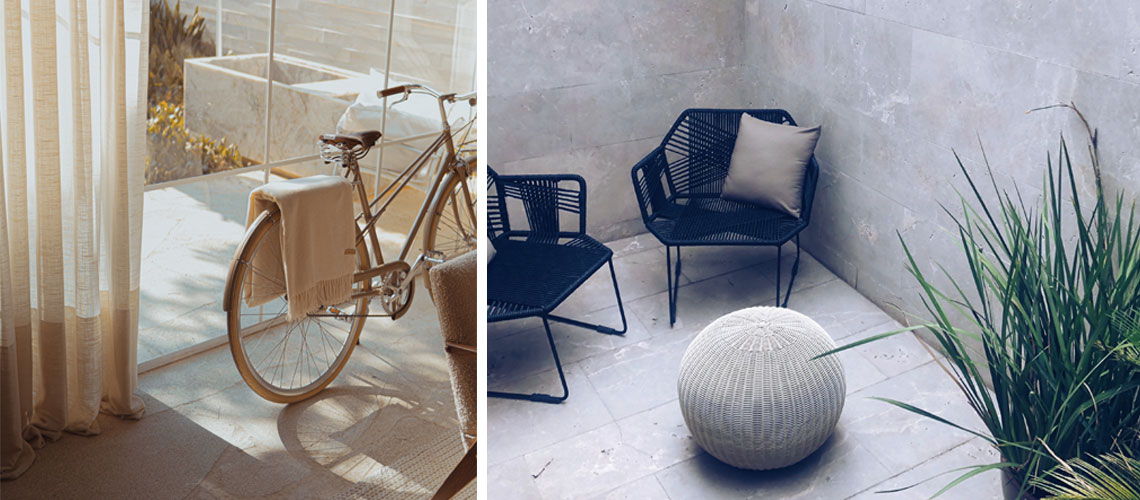
- Natural stone on walls and floors, indoors and outdoors -
Some types of stone, for example limestone or travertine, are susceptible to cracks and chips. Porous stone will be prone to wear and tear, as well as staining once the water seeps in. A treatment of sealing with a coating or an impregnator will need to be performed, as well as regular re-sealing to keep the stone in tip-top condition. The extra maintenance is needed to ensure the stone keeps its good looks, but if this proves to be the stuff of nightmares, maybe natural stone is not for you.
Drawing this up, the natural product will cost you more to purchase, install and maintain. But all this being said, the extra cost will pay off in the long run as natural stone will increase the overall value of your home. Stone is one of the most sustainable materials around; if looked after correctly, it will last a lifetime. Taking the eco-friendly route also is ideal for homeowners who are conscious of their carbon footprint and want to do their bit for the environment.
If, after all that, you still have your heart set on natural stone, do head over to our stone section. At Tiles & Bathrooms Online, you will find the most competitively priced collections of marble, granite, slate and other gorgeous stone varieties.
Or perhaps this blog has put you off the idea? We also stock very convincing stone effect ceramic and porcelain alternatives at unbeatable prices too. Read more about the pros and cons of the other tile materials in our earlier blogs – please follow the links in the images.




